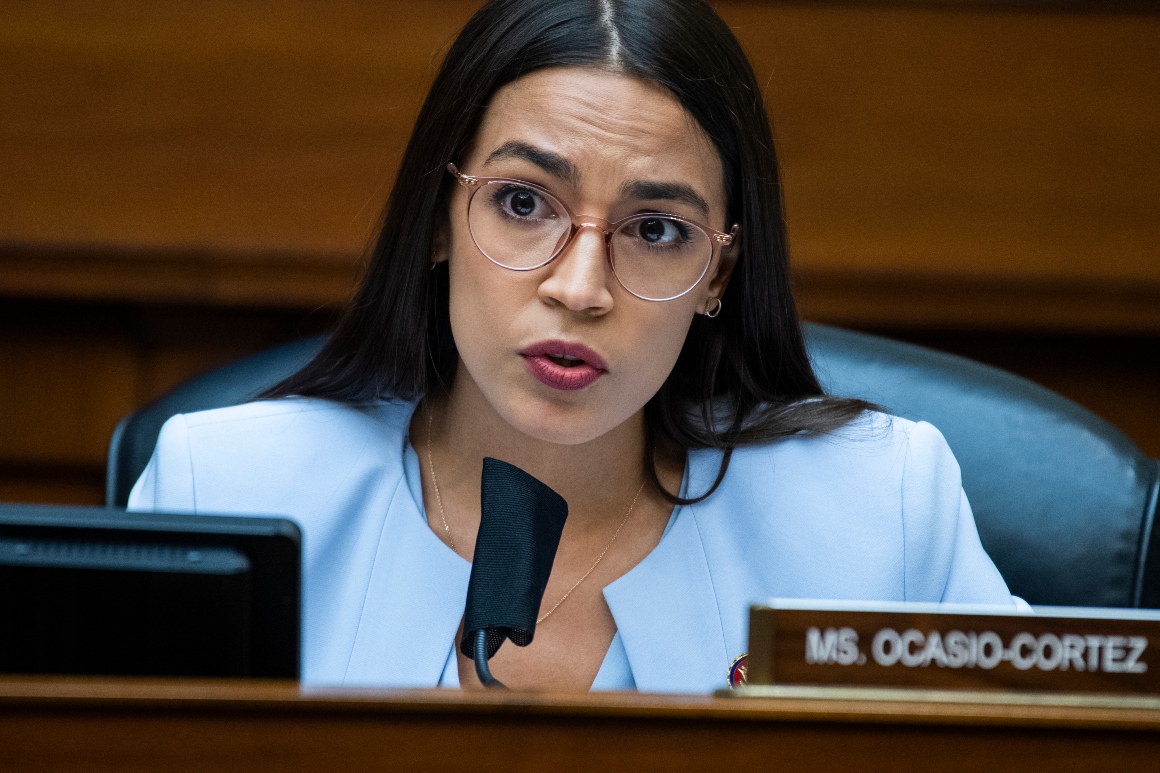Progressive lawmakers, led by Sen. Ed Markey (D-Mass.) and Rep. Alexandria Ocasio-Cortez (D-N.Y.), on Tuesday formally revived their push for a Green New Deal, leaning into the framework to swiftly transition off fossil fuels that’s become a prominent foil for conservatives.
Little more than two years after the Green New Deal landed with a massive splash on Capitol Hill, progressives are broadening their legislative focus beyond the original non-binding resolution to include pushing additional bills. That’s been a criticism of institutionalists and some moderate Democrats, who have dismissed the call for a 10-year national mobilization to combat climate change as a political headache lacking sufficient substance.
"We’re going to transition to a 100 percent carbon free-economy, that is more unionized, more just, more dignified and guarantees more health care and housing than we ever have before," Ocasio-Cortez said at a press conference overlooking the National Mall. "Do we intend on sending a message to the Biden administration that we need to go bigger and bolder? The answer is absolutely yes."
Markey credited the climate roadmap with helping to elect a new generation of progressive lawmakers and said he won his own reelection thanks to making the Green New Deal the central part of his campaign.
“For the past two years, it has been proven that the Green New Deal isn’t just a resolution — it is a revolution,” Markey said. “Do we want to go beyond even what Joe Biden has proposed? The answer is yes. We believe that this is the moment that requires us to act big, think big, have a program that matches the magnitude of the problem that we’re confronted with. And to do so with justice."
But Republicans pounced on the resolution’s reemergence.
“The Green New Deal is a socialist super-package which will only saddle hard-working taxpayers with debt and displace millions of Americans from their jobs,” said Rep. James Comer (R-Ky.), ranking member of the House Oversight Committee, in a statement. “Democrats will stop at nothing to push their progressive pet projects on the American people.”
Deeper legislative push: Among the new legislation is a proposal from Reps. Cori Bush (D-Mo.) and Ocasio-Cortez that would authorize up to $1 trillion for cities, tribes and territories to fund their own localized versions of the Green New Deal.
Sen. Bernie Sanders (I-Vt.) and Ocasio-Cortez also released legislation on Monday that would spend up to $172 billion on public housing over 10 years, more than quadrupling what President Joe Biden’s White House has proposed for public housing.
There’s also a new proposal from Markey and Ocasio-Cortez creating the Civilian Conservation Corps, which they said would provide employment to a diverse group of 1.5 million Americans over 5 years with jobs on climate change projects that come with strong benefits. The broad contours of such a program is embraced by Democrats across the political spectrum and similar to the one Biden established in an early executive order.
Ocasio-Cortez said there are now a record 103 co-sponsors of the resolution in the House. More than a dozen pieces of legislation embracing the framework, touching on topics like transportation electrification and agricultural resilience, have already been introduced.
The proposals faces stiff headwinds in gaining consensus even among Democrats, but allows the progressive flank of the party to stake its position as Congress prepares to embark on a massive infrastructure spending push.
Key context: As much as the non-binding resolution rallied young progressives anxious for urgent action to address climate change (they protested at Speaker Nancy Pelosi’s office en masse), it turned into a favored talking point for conservatives, one of whom likened the Green New Deal as “tantamount to genocide” for western states.
Then-Senate Majority Leader Mitch McConnell (R-Ky.) even called a vote on the resolution in a bid to jam moderate Democrats in March 2019, but Democrats slammed the “sham” vote and voted present.
Republican climate summit: The progressive push lands as House Republicans are convening what they bill as a three-day, virtual “Energy Innovation Summit” where they said climate change should be addressed through approaches like technological innovation and natural solutions, such as tree planting.
“Democrats often dismiss Republicans as being disinterested in addressing global climate change — this is just false,” Minority Leader Kevin McCarthy (R-Calif.) said in a video unveiling the summit, arguing his conference developed “thoughtful, targeted legislation to reduce global emissions.”
Some of those sessions stressed the need to further develop carbon capture and advanced nuclear sessions but did not offer any economy-wide approaches to curb emissions. Others harkened back to familiar Republican energy talking points criticizing the cancellation of the Keystone pipeline, slamming burdensome regulations and blasting any potential carbon tax.





















